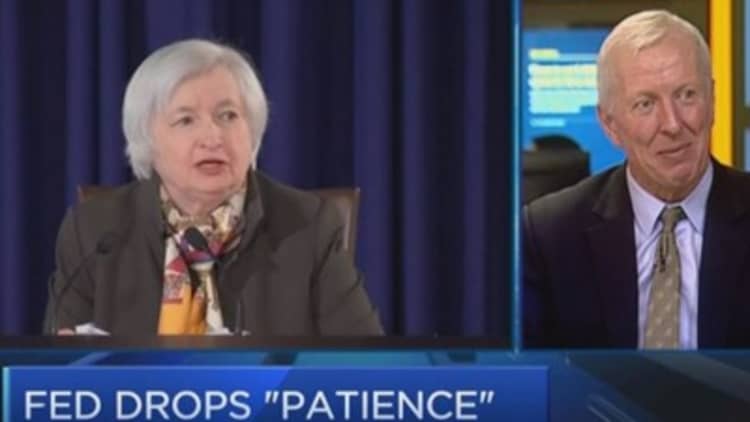
An unexpectedly dovish message to markets on Wednesday by the U.S. Federal Reserve has left one market-watcher contemplating whether it's being too "socialist" and "overly politicized."
Bryn Jones, the head of fixed income research at Rathbones - a wealth management firm based in London - believes that accommodative policy by the Fed would have been shunned by policymakers back in the time of President John F. Kennedy.
He added that some market participants have argued that by delaying a hike in interest rates and flooding the market with money, some of the Fed's actions may have a "socialist" flavor to them.
"Some have since argued that the central bank's actions in recent years, as well as this delay in raising rates, have a somewhat 'socialist' tinge to them," he said. He also noted that there are mutterings within the U.S. Congress about wanting to restrict the autonomy of the Fed.
"Are these the first signs that policies of free money have been in place for too long? All boats have risen with the tide, and the waters have become a bit crowded," he said in a post on his company's website on Wednesday.
"Perhaps we have all become a little too worried about failure. Perhaps it has all become a little too safe."
However, Jones admits that without quantitative easing from the likes of the Fed, a "great recession" might have become yet another "great depression." However, harking back to his days as an economic student, he recalls that the key difference between Capitalism and Marxism is known as "creative destruction," when a new economic model replaces an old one.
"If we avoid it, as we have been for the last seven years through QE (quantitative easing), how is it possible to tell the difference between the two? How blurred are the boundaries? Trying to figure out where we are in this economic cycle is like playing 'pin the tail on the donkey' with your hands tied behind your back!," he said.
The Fed had an unexpectedly dovish message to markets on Wednesday which hit the strength of the dollar and buoyed riskier asset like stocks. Yellen indicated that a rate rise would be closer with the removal of the word "patient" from the Fed's statement, but the central bank also signaled that it was not in a hurry to do so.
Benchmark interest rates are used to set the level of all sorts of loans and mortgages across the country and have been at record lows since the global financial crash of 2008 in order to stimulate lending in the economy. The Fed has dialed back its liquidity program but continues to be vague on when exactly it might raise rates.
Nick Carn, the founder of Carn Macro Advisors, likened Yellen's speech to "shades and shades and shades of grey" and said market participants will still be eyeing rate hike in September this year.
"I think once again what has happened is Yellen (and the committee) have found another headwind and it's the U.S. dollar," he told CNBC Thursday.
Berenberg analysts, including economist Christian Schulz, believe that it would take a serious slowdown in the U.S. to prevent a first rate hike this year. In a note on Thursday morning the bank said that July is still its expected date for the first rate hike.
Rathbones' Jones added that investors should be "careful what they wish for" if they longed for the Fed to exit is aggressive policy return to relative normality.
"The world has been a 'safe' place to invest in during recent times. If central bankers were to move away from maintaining social stability, defaults could rise sharply and zombie companies start to die," he said.



